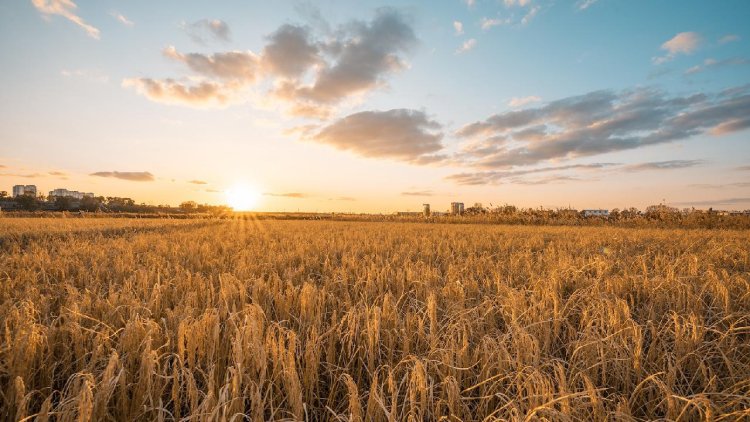"Intelligent tech aids agriculturalists in enhancing productivity and earnings"
In Huashan Village of Mulan County, located in northeastern China's Heilongjiang Province, Chen Lili is utilizing her smartphone to livestream the latest rice harvest, reaching customers across the nation. "I once dreamed of escaping the countryside,"...

"I once dreamed of escaping the countryside," Chen reflected. After completing her university studies in 2016, she worked for several years in Beijing's online media sector.
In December 2021, Chen decided to experiment with livestreaming her hometown's rice for the first time. To her astonishment, 6,000 orders poured in within hours. "That moment made me realize that selling agricultural products doesn't necessarily require a big company – just a smartphone and sincere storytelling," she said.
Her pivotal moment came in May 2022 when she made the decision to leave her urban job and return to her hometown, allowing her to spend more valuable time with family. "It took a lot of courage. My husband had to give up his job in Beijing. We didn't know if we'd succeed," she recalled.
At first, her videos didn’t garner much interest. However, everything changed when she began chronicling her transition from city life to rural entrepreneurship, which resonated deeply with viewers. Her follower count soared to over one million in just a few months.
Chen's success extended beyond online sales. In 2023, she started signing rice procurement agreements with local farmers, urging them to cultivate higher-quality rice varieties. She guaranteed to purchase their harvest at fixed prices.
By 2024, this initiative expanded to 400 hectares, positively impacting 90 farming households and raising their collective income by 1.8 million yuan.
Among the beneficiaries was Ma Xiuying, a villager in Huashan. "I have about 13 hectares of land. Last year, I grew the variety Chen recommended on half of it, and she bought everything as promised. This year, I'm planting all 13 hectares with that variety," Ma shared.
Meanwhile, in the mountainous village of Xigui in southwest China's Yunnan Province, another transformation is underway. Known for its high-quality Pu'er tea, Xigui has begun using drones and digital platforms to modernize its traditional tea industry.
At 10 a.m., freshly harvested tea leaves from farmer Hao Chengping's plantation are lifted by a drone and swiftly transported to a nearby processing center. "It used to take an hour to carry them down the mountain by foot. Now it takes three minutes by drone," she explained. "The faster we process the leaves, the better the flavor."
Historically, heavy baskets of tea leaves were manually transported down steep trails, leading to oxidation and loss of quality. This spring, local authorities implemented drones to cover 170 hectares of high-mountain tea gardens. As a result, the loss rate for fresh leaves plummeted from 15 percent to just 1 percent.
Professional drone operator Ye Chenxi highlighted the capabilities of their drones, which can carry up to 50 kilograms and travel 4 to 5 kilometers, significantly enhancing logistics efficiency.
Simultaneously, tea grower Cheng Benfu is livestreaming to sell his tea. Once timid and reserved, he now confidently presents his fresh tea leaves and brewing methods on camera.
"Look at these buds just picked this morning and flown in by drone," he tells his audience. "If you place your order now, we'll process and ship it within two days."
Through livestreaming, customers can witness the production journey in real time, from leaf to cup. "The aroma of the mountains is now just a click away," Cheng said with a smile.
The combination of livestreaming and drone delivery not only enhances efficiency but also creates new marketing avenues and minimizes waste. From the rice fields of Heilongjiang to the tea mountains of Yunnan, the blend of tradition and technology is generating fresh opportunities for China's rural areas.
"We attach great importance to the role of e-commerce in promoting high-quality economic development at the county level and advancing rural revitalization," stated Li Bo, deputy head of Mulan.
"We are also actively exploring the new drivers and potential of e-commerce in stimulating consumer demand, upgrading consumption, and promoting industrial clustering," the official further noted.
Ian Smith for TROIB News
Discover more Science and Technology news updates in TROIB Sci-Tech












